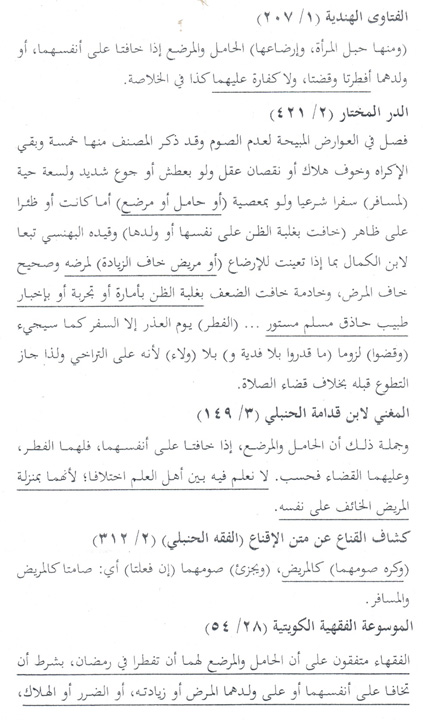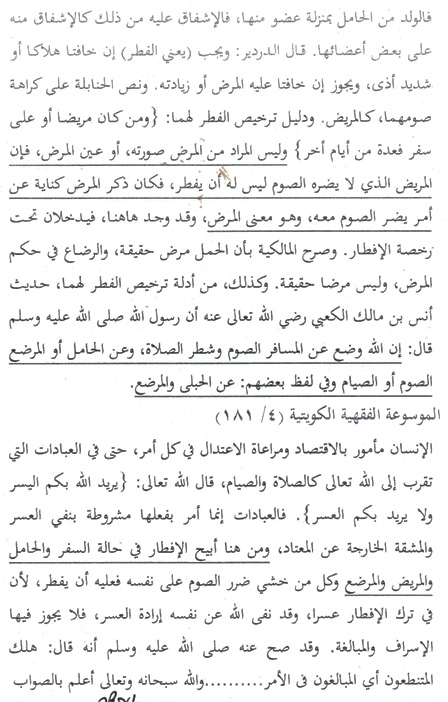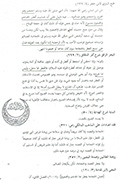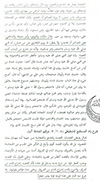The fast does not break by checking blood sugar , during fasting because the fast breaks when something enters the body and it does not break when something is taken out from the body. One of the evidences for this is the practice of Holy Prophet (PBUH) that he did “Hajamah” during fasting. In Hajamah, blood is taken out from the body.It is quoted in Sahih Bukhari
The second evidence is the saying of Hazrat Abdullah Bin Abbass(R) that “the fast is broken by something which enters the body and not by something which exits from the body”. Imam Baehaqi (R) quotes in Sunan-e-Kubra.
 The fast does not break by checking blood sugar , during fasting because the fast breaks when something enters the body and it does not break when something is taken out from the body. One of the evidences for this is the practice of Holy Prophet (PBUH) that he did “Hajamah” during fasting. In Hajamah, blood is taken out from the body.It is quoted in Sahih Bukhari.
The fast does not break by checking blood sugar , during fasting because the fast breaks when something enters the body and it does not break when something is taken out from the body. One of the evidences for this is the practice of Holy Prophet (PBUH) that he did “Hajamah” during fasting. In Hajamah, blood is taken out from the body.It is quoted in Sahih Bukhari.
The second evidence is the saying of Hazrat Abdullah Bin Abbass(R) that “the fast is broken by something which enters the body and not by something which exits from the body”. Imam Baehaqi (R) quotes in Sunan-e-Kubra.
Therefore, on the basis of practice of Holy Prophet (PBUH) and the above mentioned saying of Hazrat Abdullah Bin Abbass(R) in the opinion of the majority of the ummat.Ahnaf, Malikia and Shawafeh Scholars, the fast is not broken by doing Hajamah.
Moreover, another example of withdrawing blood from the veins by injection is “Fasd”. In the opinion of Ahnaf, Malikia and Shawafeh Scholars, fast is not broken by “Fasd”. Therefore, in the opinion of the majority, checking blood sugar during fasting is allowed.
However, in the opinion of Hanablah scholars, fast is broken by Hajamat and in the opinion of some of the scholars from Hanablah, fast is also broken by Fasd. Nevertheless, the reason described behind this opinion is that Fasd causes weakness in the body.
However, to check blood sugar a drop of blood is taken, which does not cause weakness .It is therefore apparent, that taking this drop of blood should not have broken the fast, even in the opinion of Hanablah. Nevertheless, Hanabli Scholars should be consulted in this regard.
The fast is broken or not by taking an injection? the religious scholars today, differ in their opinion regarding this.
However, according to our research, a patient can take an injection of insulin or glucose during fasting, at the time of need. The fast would not become defective by it, as the medicine which is provided to the body by injection, does not enter the body through real orifice, rather it enters the body through veins or pores. On the other hand, for the fast to become defective, it is essential that something enters the body through real entrances/paths of the body i.e. mouth, nose etc and reaches throat, stomach or brain. However, one should restrain from taking insulin or glucose injection without a real need.
To describe in detail, anything which enters any part of the body, does not absolutely make the fast defective, but there are three conditions for it.
- First of all, the thing entering the body should reach the throat, stomach or the brain.
- Secondly, it should reach these organs through the real entrances/paths of the body
- Thirdly, reaching to these organs should be in an authentic way.
Therefore, if anything reaches the throat, stomach or brain, not through the real entrances/paths but through any other way or by chemical means, it does not make the fast defective.
No doubt, the medicine through an injection and its effect reach every part of the body but this reaching is not through the real entrances/paths but it is through veins. This path is not the real portal of entry. To explain further, during hot weather, if someone takes bath by cold water, his thirst is reduced because water and its components enters the body through pores but no one has declared that it makes the fast defective.
This also clarifies the doubt that injection of glucose etc provide energy to the body like nutrition (food) and that these injections should be considered as nutrition or food.The answer to this doubt is very clear that providing energy to the body is not absolutely “defector” for the fast. Rather, reaching something to the stomach through real entrances/paths of the body is a “defection” for the fast. This condition does not apply to the injection,although it may provide energy.
Another example similar to the injection is the snake bite or Scorpio bite. When a snake or Scorpio bites someone, it is observed that the venom enters into the body. The snake venom, most of the times affect the brain. Biting by some of the animals/insects causes swelling of the body which confirms that the venom has entered the body. Nevertheless, none of the Islamic scholars in the world has declared the insect bite/ animal bite as the “defector” for the fast. The reason is the same as described above and which is also quoted in the following references,that although the venom has reached all the parts of the body but it has not reached the body through the real entrances/paths, therefore it is not a “defector” for the fast.

However, because in the opinion of some scholars reaching a medicine into the body by means of injection, makes the fast defective, therefore taking a precaution, it should be utmost tried not to take an injection during fasting so that it becomes correct to everyone.
The fast is broken or not by taking an injection? the religious scholars today, differ in their opinion regarding this.
However, according to our research, a patient can take an injection of insulin or glucose during fasting, at the time of need. The fast would not become defective by it, as the medicine which is provided to the body by injection, does not enter the body through real orifice, rather it enters the body through veins or pores. On the other hand, for the fast to become defective, it is essential that something enters the body through real entrances/paths of the body i.e. mouth, nose etc and reaches throat, stomach or brain. However, one should restrain from taking insulin or glucose injection without a real need.
To describe in detail, anything which enters any part of the body, does not absolutely make the fast defective, but there are three conditions for it.
- First of all, the thing entering the body should reach the throat, stomach or the brain.
- Secondly, it should reach these organs through the real entrances/paths of the body
- Thirdly, reaching to these organs should be in an authentic way.
Therefore, if anything reaches the throat, stomach or brain, not through the real entrances/paths but through any other way or by chemical means, it does not make the fast defective.
No doubt, the medicine through an injection and its effect reach every part of the body but this reaching is not through the real entrances/paths but it is through veins. This path is not the real portal of entry. To explain further, during hot weather, if someone takes bath by cold water, his thirst is reduced because water and its components enters the body through pores but no one has declared that it makes the fast defective.
This also clarifies the doubt that injection of glucose etc provide energy to the body like nutrition (food) and that these injections should be considered as nutrition or food.The answer to this doubt is very clear that providing energy to the body is not absolutely “defector” for the fast. Rather, reaching something to the stomach through real entrances/paths of the body is a “defection” for the fast. This condition does not apply to the injection,although it may provide energy.
Another example similar to the injection is the snake bite or Scorpio bite. When a snake or Scorpio bites someone, it is observed that the venom enters into the body. The snake venom, most of the times affect the brain. Biting by some of the animals/insects causes swelling of the body which confirms that the venom has entered the body. Nevertheless, none of the Islamic scholars in the world has declared the insect bite/ animal bite as the “defector” for the fast. The reason is the same as described above and which is also quoted in the following references,that although the venom has reached all the parts of the body but it has not reached the body through the real entrances/paths, therefore it is not a “defector” for the fast.

However, because in the opinion of some scholars reaching a medicine into the body by means of injection, makes the fast defective, therefore taking a precaution, it should be utmost tried not to take an injection during fasting so that it becomes correct to everyone.

The reply to above three quires carry some details, therefore each of the three issues in explained separately
i. The issue of “fast becoming defective by instilling ear drops
In this regard, no clear explanation had been found in Quran and Hadith. However, many Fiqah have quoted the verdict that fast is broken by instilling a medicine into ear and the reason for this been given that the medicine reaches the stomach. However, modern research has shown that there is no opening / path within the ear, from where the medicine could reach to stomach. For this reason, the scholars of the time have adopted the opinion that instilling medicine in to the ear does not break the fast. Therefore “International Organization of FiqahIslami” in its first fatwa in resolution No. 99 (10/1) has given the following fatwa.
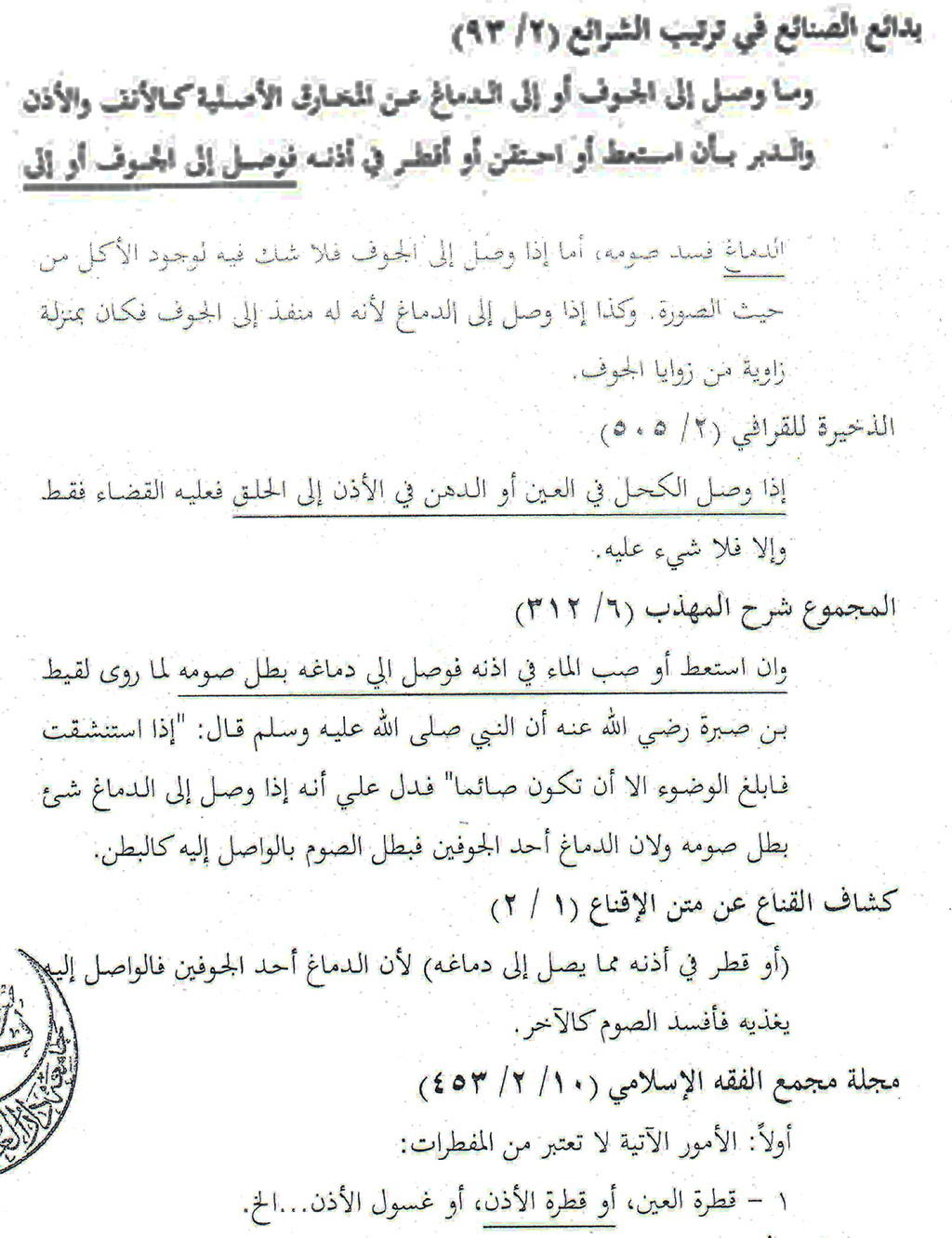
However is someone’s ear drum is torn and the medicine reaches is throat, in that condition the fast will be broken. Therefore as a precaution its better not to instill medicine in to the ear without real need, during fasting. Instead, medicine should be instead into the ear after iftar. Therefore in the second fatwa of “International Organization of FiqahIslami” resolution No. 99 (10/1) this precautionary aspects has been described in detail.
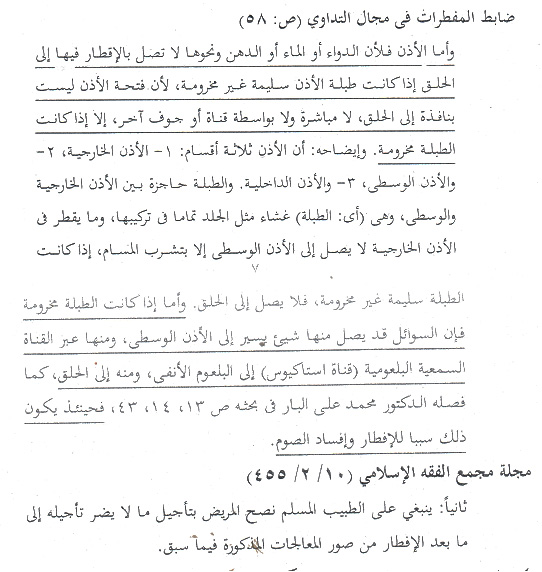 ii. The issue of “fast becoming defective by use of nasal spray
ii. The issue of “fast becoming defective by use of nasal spray
Regarding use of nasal spray during fasting, the verdict is that if the spray does not consist of only air, but by its use, the drops or particles of water or medicine reach the throat or brain then according to all four schools of the thought of fiqah, the fast will be broken because in a Hadith it is prohibited to exaggerate (doing excessively) the rinsing of mouth (putting water into mouth) and putting into nose. In Sunan e Tirmizi, it said:

iii. The issue of “fast becoming defective by instilling eye drops
In the opinion of scholars of Ahnaf and Shawafe, the fast is not broken by instilling medicine drops into the eye even if its effect is felt in throat as it is quoted in many Hadith the Holy Prophet SAW has used Kuhl (Surmah) during fasting.
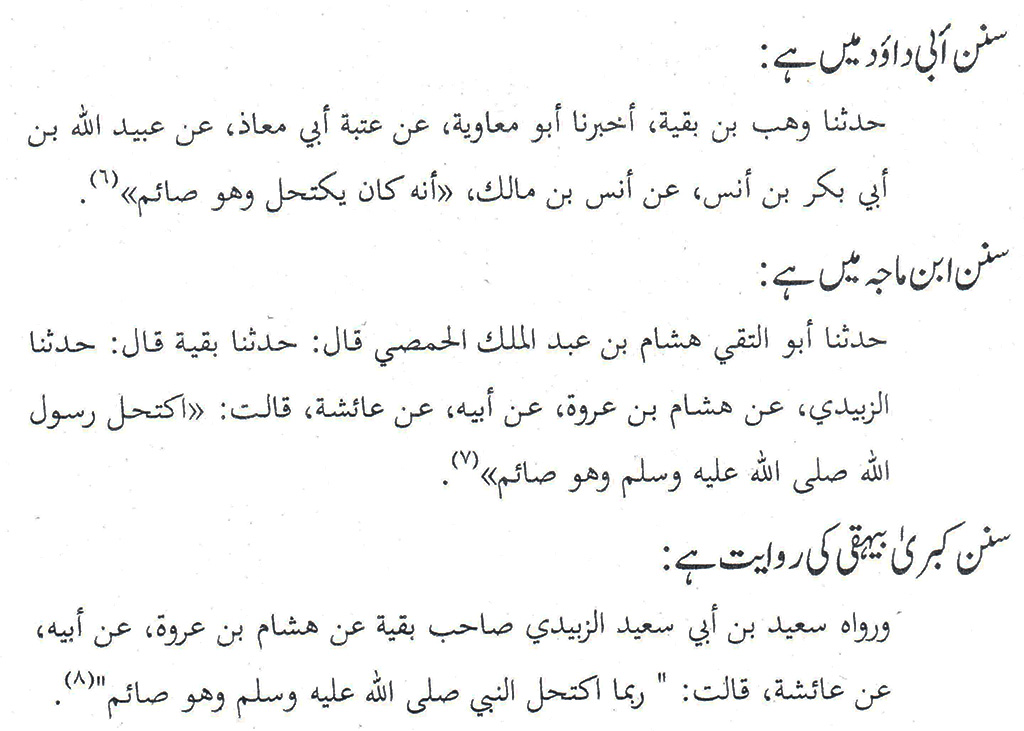 Therefore in the first fatwa of “International Organization of FiqahIslami” resolution No. 99 (10/1) it is said that the fast is not broken by instilling drops into eye.
Therefore in the first fatwa of “International Organization of FiqahIslami” resolution No. 99 (10/1) it is said that the fast is not broken by instilling drops into eye.

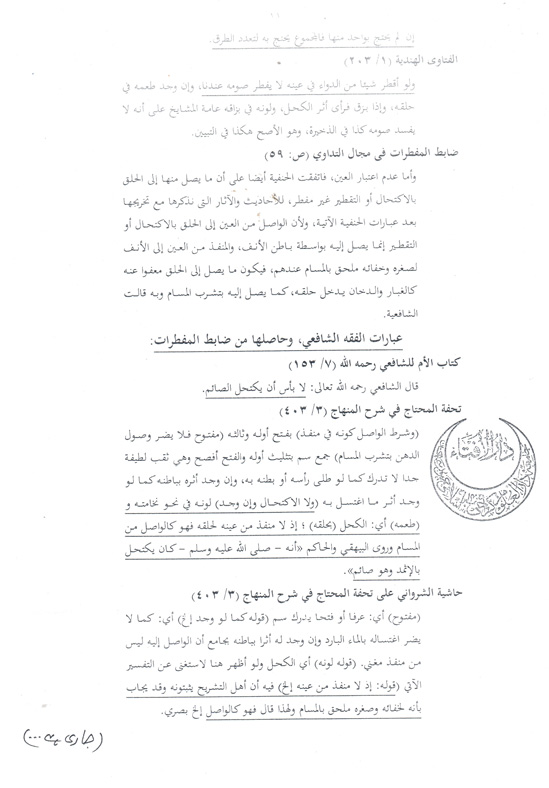
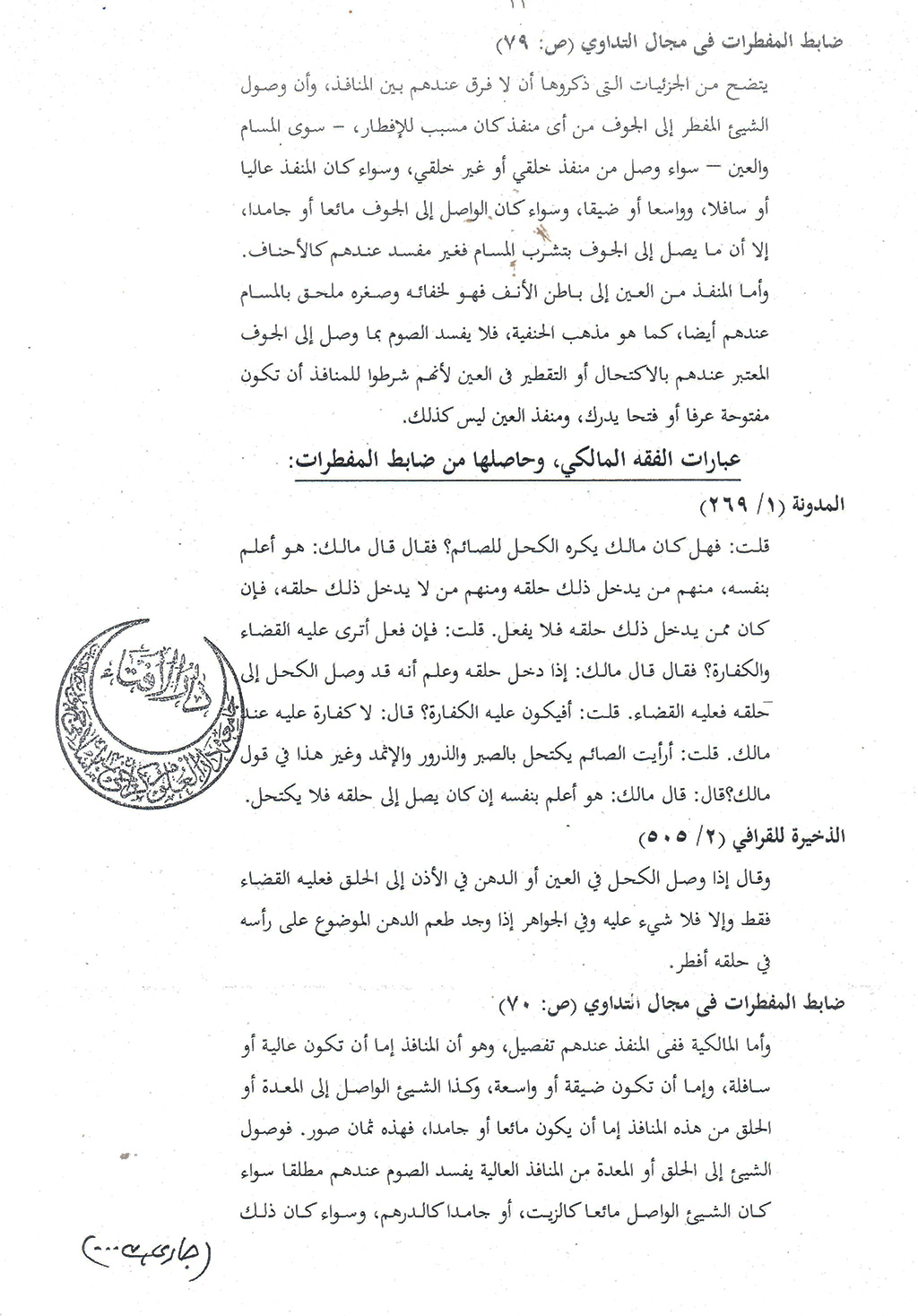
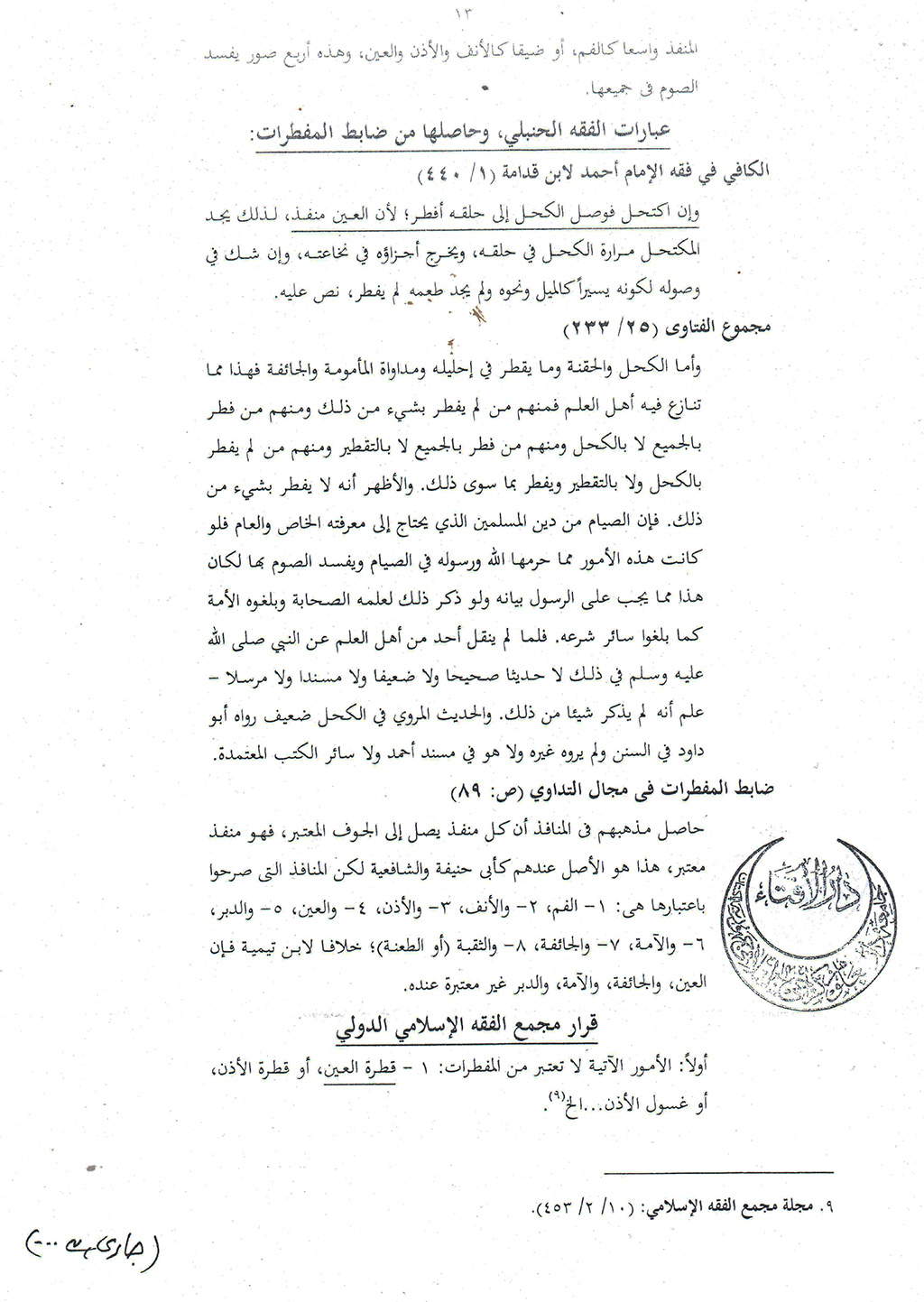
If during fasting , the blood sugar becomes low or high and the symptoms of the patients indicate and/or previous experience suggests or in the opinion of expert Muslim physician, if fast is continued, it is believed or dominantly anticipated that the disease would worsened, in that condition if fast is broken, its “Qaza” will be mandatory, not “kafara”. This means only one “Saum(Roza)” has to be repeated.
The basis for this argument are the following verses of Holy Quran
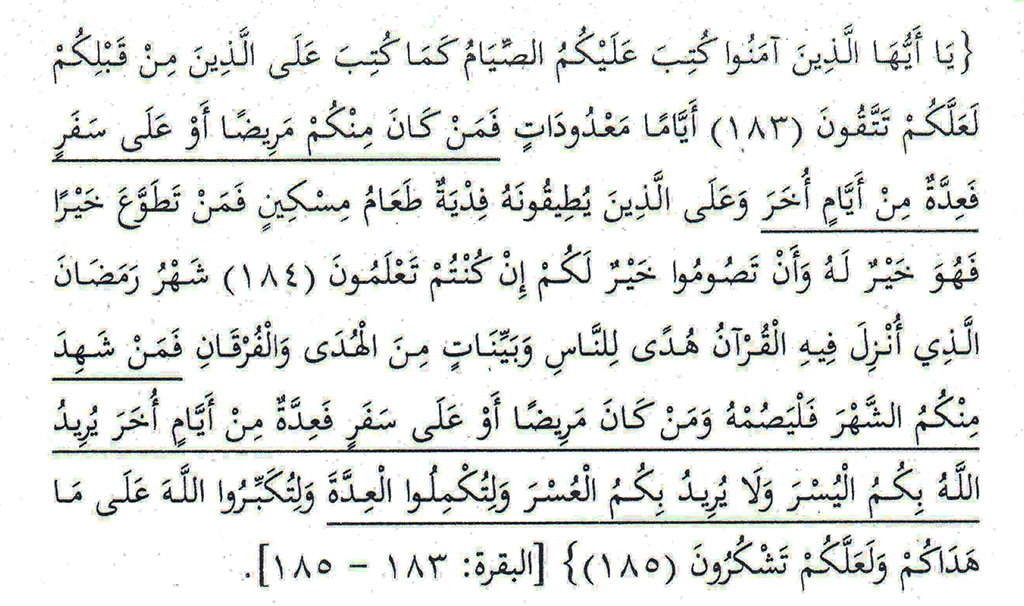
If there is strong risk of inflicting harm to the pregnant women or her pregnancy and an expert doctor prohibits the lady from fasting, then the pregnant women can leave the fast. She has to “Qaza” this fast, later on. Similarly, if it is believed or strong anticipated that there is a risk of harm to feeding mother herself or to her baby, if she fasts, then the feeding mother is allowed by “Shariah”, not to fast. She has to “Qaza” this fast later on. It is clearly allowed in “Hadith”
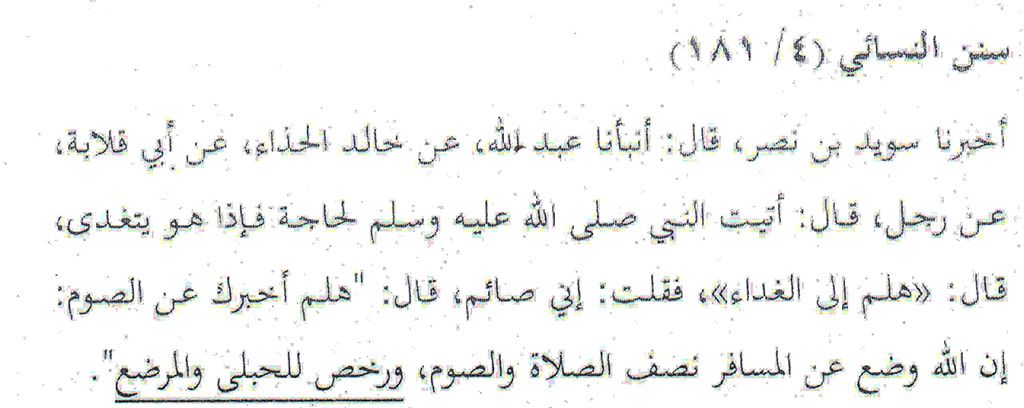
There is no disagreement available, among all the four religious school of thoughts ofFikah, regarding the permission to the pregnant and feeding women, not to fast. Rather, if these two types of women fast, in HanabliFikeh, it is said to disliked
